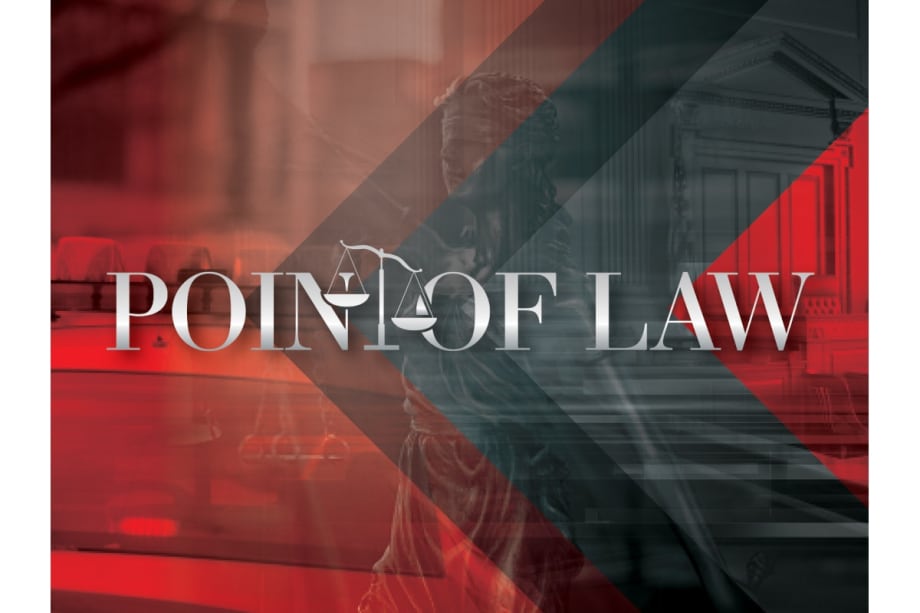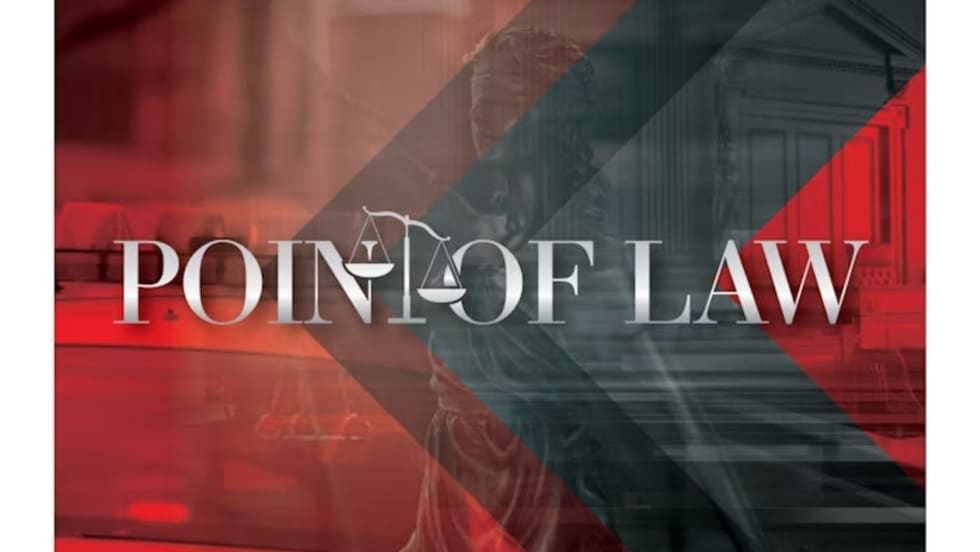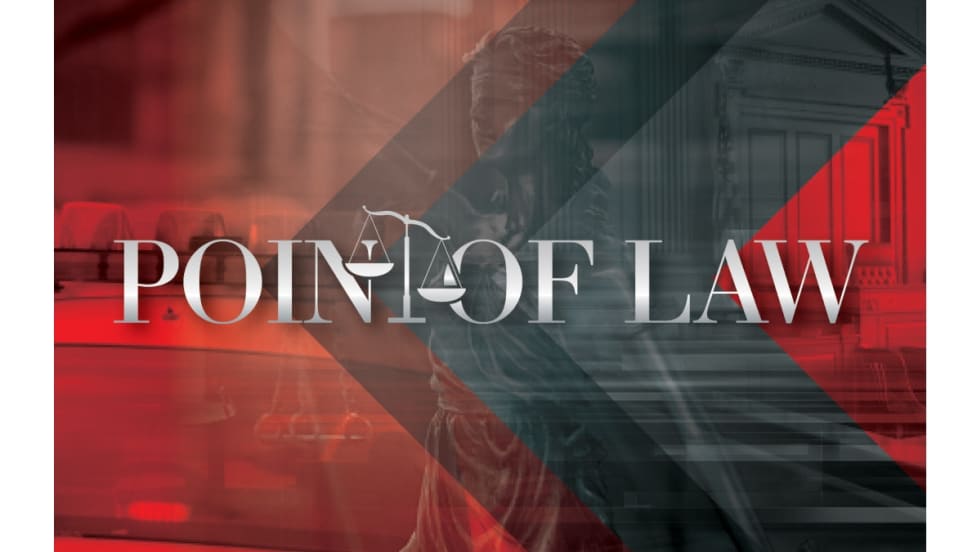The Sixth Circuit Court of Appeals’ decision in US v. Daniel discusses an officer’s reasonable reliance on probable cause in the context of a search warrant, while exploring the boundaries of the good-faith exception. So it’s a case that you should know about.
Point of Law: The Good-Faith Exception in Probable Cause
The exclusionary rule may not apply where police relied in good faith on a warrant later found to be insufficient.

POLICE
US v. Daniel made its way to the Sixth Circuit after the defendant, Alejandro Daniel, was indicted for conspiracy to possess with intent to distribute one kilogram or more of a controlled substance containing heroin. Daniel moved to suppress the evidence recovered from a search that led to his charges, arguing that the search and seizure of his vehicle were not supported by probable cause and contained material omissions.
The district court ultimately denied the motion to suppress, and Daniel entered a guilty plea.
On appeal to the Sixth Circuit, the defendant challenged the district court’s denial of his motion to suppress the evidence, disputing the legitimacy of the search warrant, citing a significant omission and a lack of probable cause.
Hearing the case on appeal, the Sixth Circuit affirmed the lower court’s denial of the motion to suppress the evidence because the officers in this case reasonably relied on the search warrant in good faith.
Let’s start with the facts of the case.
The Case
In the early morning hours of July 22, 2020, agents from the Miami Valley (Ohio) Bulk Smuggling Task Force began surveillance of a hotel located in an area reputed for activities linked to drug trafficking and money laundering.
While conducting the surveillance operation, agents noticed a silver Dodge Charger parked in the hotel parking lot. The California license plate prompted the agents to check if there were any border crossings associated with the vehicle, ultimately revealing that the Dodge had entered the U.S. from Mexico on July 14, driven by individuals named Jermaine Bounds and Daniel.
The agents’ review of law enforcement databases indicated that Daniel had previously been stopped with a small quantity of marijuana at a border crossing, while Bounds had an earlier drug-related infraction on his record along with an active arrest warrant for a traffic violation. Surprisingly, neither individual was listed as a guest at the hotel.
As the agents continued surveillance, they observed a woman, Alexis Iniguez, who was retrieving dog supplies from the vehicle’s trunk. Iniguez was registered at the hotel and had a history of several crossings at the U.S.-Mexico border. Later, Iniguez was seen with the two individuals approaching the Dodge Charger. She entered the Charger, and the two men got into a Kia Soul.
Agents followed the two vehicles, as both cars proceeded to a location at the crossroads of Fairview Avenue and Mayfair Road in Dayton.
Here, the agents observed Daniel acting suspiciously, extensively inspecting both the passenger and driver’s area of the Charger before walking away with Iniguez, leaving Bounds to watch the Charger from the parked Kia Soul.
Iniguez and Daniel realized they were being followed by Agent Miller, prompting them to separate to avoid detection.
Bounds was unresponsive when approached by agents, and Daniel denied any involvement, but Iniguez admitted to being hired by Daniel to transport a vehicle from California to Dayton.
She told the agents that she started this journey on July 19, with Bounds and Daniel following her in the Kia Soul, the vehicle they made her rent. The next day, the group met at a hotel in Arizona, where Daniel directed her to drive the Dodge Charger to Dayton.
When the trio arrived in Dayton, the two men made her rent two hotel rooms under her name. Despite her suspicions about the job’s legality, she told the officers that her financial difficulties motivated her to proceed.
Iniguez consented to a search of both the vehicle and the hotel rooms. During the consent searches, agents found a minimal amount of marijuana and paraphernalia in the room occupied by Bounds and Daniel, but an initial search of the Dodge Charger, spanning less than ten minutes, turned up nothing incriminating.
Despite this, the agents opted to impound the car. Agent Leslie later prepared an affidavit which led to a state court judge issuing a warrant for a thorough search of the Charger.
This subsequent search revealed a secret compartment within the car’s dashboard housing a significant quantity of a substance suspected to be a mixture of fentanyl or heroin, amounting to three kilograms.
Daniel, now facing charges of conspiracy to possess and distribute substantial quantities of controlled substances, contested the validity of the search warrant.
The Warrant
Let’s take a moment to briefly review key concepts and further break down the specifics included within the officer’s affidavit.
The Fourth Amendment acts as a safeguard against unreasonable searches and seizures, necessitating that all search warrants be grounded in probable cause.
The framework for understanding this analysis is established by three seminal cases.
As highlighted in the landmark case, Illinois v. Gates, the threshold for probable cause requires only a probability or substantial chance of criminal activity, not an actual showing of such activities. In Davis v. United States, the Court clarified that if police obtained evidence via a search that lacked probable cause, courts may suppress that evidence under the exclusionary rule. However, per United States v. Leon, the exclusionary rule does not apply where police relied in good faith on a warrant later found to be insufficient, provided that the officer’s reliance was objectively reasonable. For officers, the general takeaway from this case is that when officers discover the evidence after obtaining a warrant, even if the warrant lacked probable cause, the good faith exception precludes suppression.
But it is critical for us to remember that the good-faith protection is not absolute, as the Sixth Circuit in United States v. Washington limited this rule.
The court clarified that the good-faith exception doesn’t apply, and evidence might be excluded if:
1. the warrant affidavit contains statements known or ought to be known as false;
2. the judge failed to fulfill their role adequately;
3. the affidavit relied on “bare bones” evidence or lacks any indication of probable cause;
4. the warrant was so obviously insufficient that it would be unreasonable for officers to consider it valid.
Sixth Circuit Ruling
On appeal, the court considered whether one particular purported omission was significant enough to change the probable cause and good-faith analyses.
The court found that it was not.
The Sixth Circuit affirmed the district court’s denial of the motion to suppress the evidence by relying on the good-faith exception.
After reviewing the affidavit, the Sixth Circuit found that even if the omitted results from the first, unsuccessful vehicle search were included within the affidavit, this inclusion would not have altered the overall circumstances as established by additional information within the affidavit.
The court found that the affidavit’s omission of the initial search’s fruitless results did not amount to a deliberate falsehood or demonstrate reckless disregard for the truth, to the extent that it would negate the applicability of the good-faith exception.
The court further reasoned that the outcome of the first car search didn’t reduce the probable cause to the extent that would prevent officers from relying on the issued warrant in good faith. The court emphasized that the brief nature of the initial search, which overlooked a concealed compartment where evidence was later found, doesn’t imply any bad faith on the officers’ part.
Takeaways
What should officers take away from this article?
The Sixth Circuit’s ruling emphasized that the good-faith exception continues to apply, even when certain details, such as an initially fruitless search, are omitted from the affidavit, as long as these omissions don’t amount to deliberate falsehoods or a reckless disregard for the truth. It reflects an acknowledgment of the realities of fieldwork, where not all searches immediately yield results.
In this context, the court appreciated the brief nature of the initial search, which inadvertently missed a hidden compartment containing substantial evidence, thus not implicating any bad faith from the officers involved.
Remember, while the good-faith exception has been a cornerstone in supporting officers’ actions, it’s not without its boundaries. We must ensure that our actions remain aligned with procedure, to avoid potential pitfalls of “bare bones” evidence or reliance on obviously insufficient warrants.
Eric Daigle is founder of Daigle Law Group, LLC, a firm that specializes in law enforcement operations. A former Connecticut State Police officer, Daigle focuses on civil rights actions, including police misconduct litigation. He is a legal advisor for police agencies across the country and a member of the POLICE Advisory Board.
More Point of Law

Point of Law: The Limits of Electronic Searches
Can an individual be prosecuted for despicable criminal conduct based on evidence obtained in violation of the United States Constitution? Ultimately, the Ninth Circuit judges wrote, “In the circumstances of this case (United States v. Holcomb, 23-469 (9th Cir. 2025)), respect for the Constitution and the rule of law requires an answer of “no.”
Read More →
Trump Issues Order Cutting Federal Funding in Cashless Bail Jurisdictions
<strong>“</strong>Cashless bail policies allow dangerous individuals to immediately return to the streets and further endanger law-abiding, hard-working Americans because they know our laws will not be enforced,” the administration said.
Read More →
Justice Department Sues Los Angeles Over Sanctuary Policies
The DOJ said in a press release that the “sanctuary city” policies of the City of Los Angeles are illegal under federal law.
Read More →
Understanding Officer-Created Jeopardy
Officers can be criminally prosecuted for using force when their actions led to escalation during contact with subjects.
Read More →
Point of Law: The Limitations of Search Warrants
In the Tenth Circuit case of Cuervo v. Sorenson, the Court ruled officers cannot deviate from the language of the warrant.
Read More →
DOJ Dismisses Consent Decrees Affecting Louisville and Minneapolis Police
The Civil Rights Division will be taking all necessary steps to dismiss the Louisville and Minneapolis lawsuits with prejudice, to close the underlying investigations into the Louisville and Minneapolis police departments.
Read More →
New Michigan Bill would Give Officers Civil Immunity in Self-Defense Cases
House Bill 4404 would create a presumption of civil immunity for individuals who are cleared criminally after using force in self-defense, shifting the burden of proof onto plaintiffs.
Read More →
Seattle to Pay Police Captain $1 Million to Settle Lawsuit
Seattle police Capt. Eric Greening sued former Chief Adrian Diaz last year alleging that Diaz retaliated when Greening brought up concerns about racial and gender discrimination.
Read More →
Washington Agencies Ordered to Not Delete Critical Facebook Contents
Jim Leighty, a local activist, filed two federal lawsuits last year claiming both agencies deleted or hid critical comments he had written below multiple posts, while keeping comments that were pro-police in nature.
Read More →
Washington State Attorney General Sues Sheriff for Helping Immigration Enforcement
The lawsuit claims the Adams County Sheriff’s Office has illegally held people in custody based only on their immigration status, helped federal agents question people in custody, and given immigration officials confidential personal information.
Read More →
